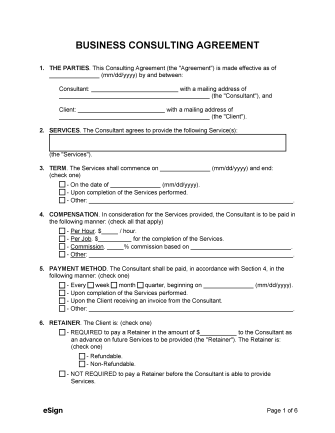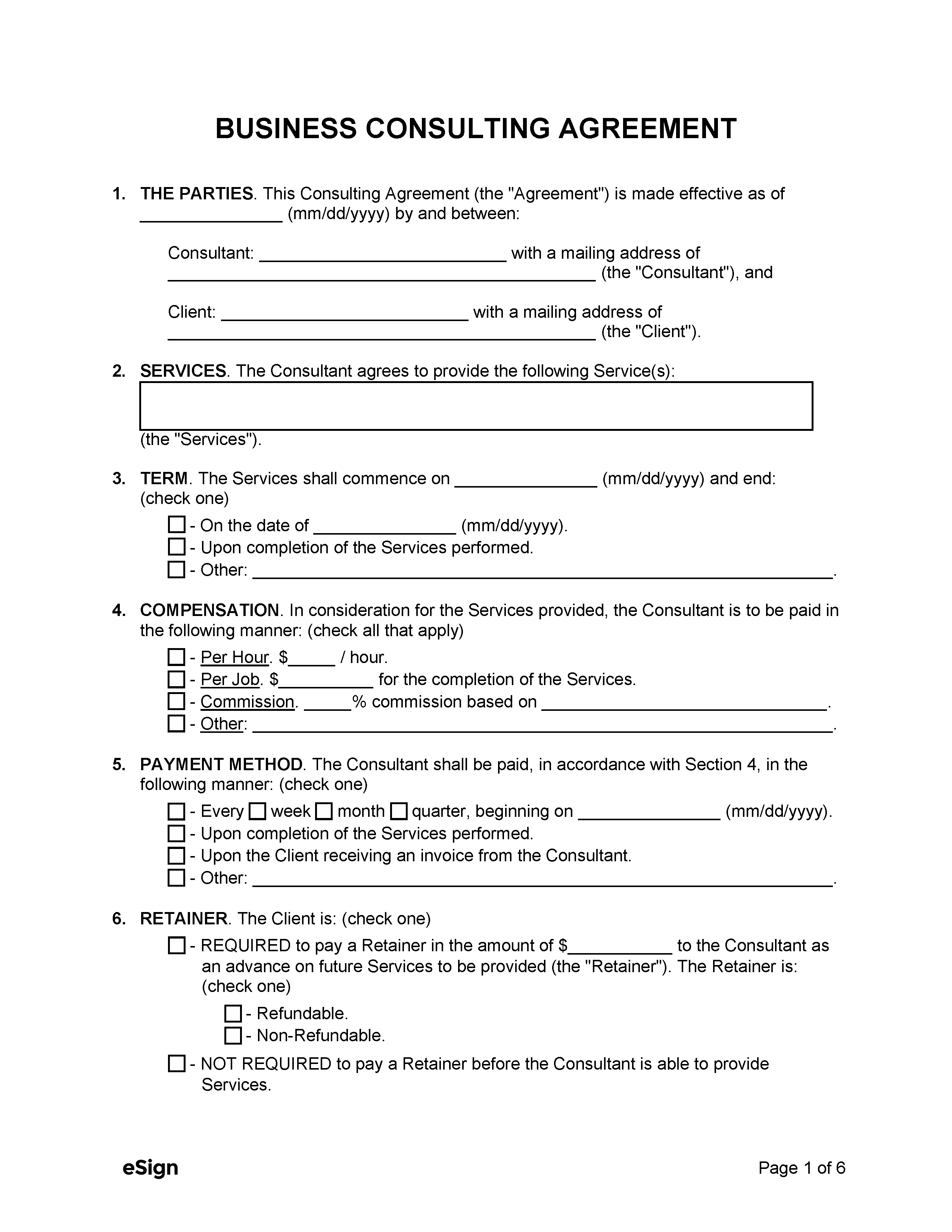Importance of a Consulting Agreement
- The amount and structure of payment.
- The services the consultant agrees to perform.
- The terms of the business consulting contract.
- What expenses the consultant is responsible for.
- The consultant’s status as an independent contractor.
- The consultant’s duty to preserve the confidentiality of the client’s proprietary information.
Sample
Download: PDF, Word (.docx), OpenDocument
BUSINESS CONSULTANT AGREEMENT
1. THE PARTIES. This Business Consultant Agreement (“Agreement”) is made effective as of [DATE] by and between:
Consultant: [CONSULTANT’S NAME], with a mailing address of [CONSULTANT’S ADDRESS] (“Consultant”), and
Client: [CLIENT’S NAME], with a mailing address of [CLIENT’S ADDRESS] (“Client”).
2. CONSULTING SERVICES. The Consultant agrees to provide the following services to the Client: [DESCRIBE CONSULTING SERVICES] (“Services”).
3. PAYMENT. In consideration for the Services to be provided, the Client agrees to pay the Consultant $[AMOUNT] per [PAYMENT BASIS (E.G., HOUR)]. The Client shall issue payment within [#] day(s) after receiving an invoice from the Consultant.
4. TERM. The Services shall commence [DATE] and end upon [END DATE OR OTHER TERMINATION EVENT].
5. RETAINER. As an advance on future Services to be provided, the Client is required to pay the Consultant a non-refundable retainer of $[AMOUNT], due on the [#] of each month.
6. NON-DISCLOSURE. The Consultant agrees not to disclose or misuse the Client’s proprietary or confidential information without prior written consent, except as needed to perform the Services.
7. EXPENSES. The Consultant shall only be responsible for the following expenses: [LIST EXPENSES TO BE PAID BY CONSULTANT].
8. INDEPENDENT CONTRACTOR STATUS. The Consultant is an independent contractor, and neither the Consultant nor their employees or contract personnel are or shall be deemed the Client’s employees.
9. TERMINATION. Either party may terminate this Agreement upon [#] days’ written notice.
IN WITNESS WHEREOF, the parties have executed this Agreement on the dates written hereunder.
Consultant’s Signature: ____________________ Date: [DATE]
[CONSULTANT’S PRINTED NAME]
Client’s Signature: ____________________ Date: [DATE]
[CLIENT’S PRINTED NAME]

